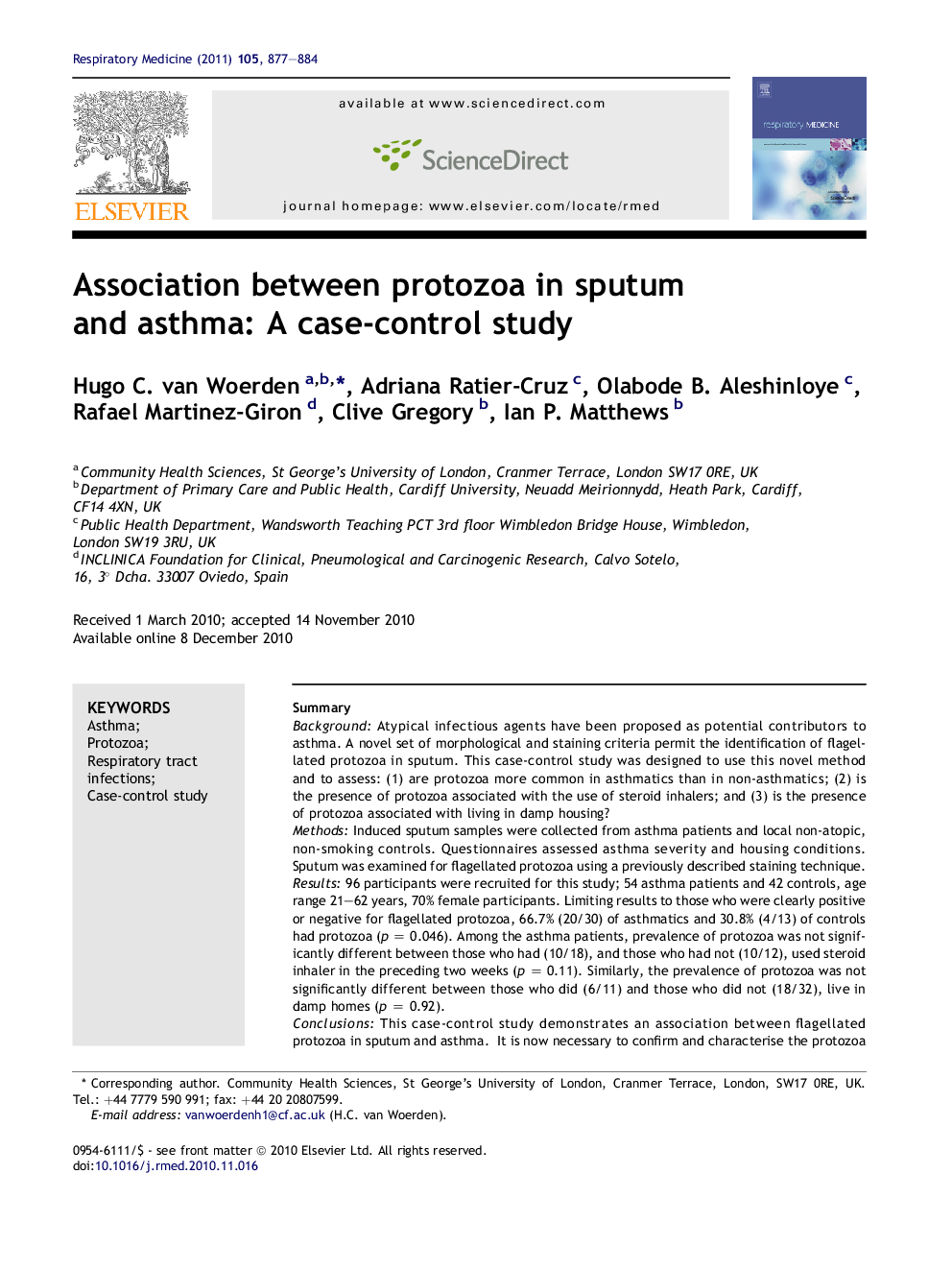| Article ID | Journal | Published Year | Pages | File Type |
|---|---|---|---|---|
| 4210364 | Respiratory Medicine | 2011 | 8 Pages |
SummaryBackgroundAtypical infectious agents have been proposed as potential contributors to asthma. A novel set of morphological and staining criteria permit the identification of flagellated protozoa in sputum. This case-control study was designed to use this novel method and to assess: (1) are protozoa more common in asthmatics than in non-asthmatics; (2) is the presence of protozoa associated with the use of steroid inhalers; and (3) is the presence of protozoa associated with living in damp housing?MethodsInduced sputum samples were collected from asthma patients and local non-atopic, non-smoking controls. Questionnaires assessed asthma severity and housing conditions. Sputum was examined for flagellated protozoa using a previously described staining technique.Results96 participants were recruited for this study; 54 asthma patients and 42 controls, age range 21–62 years, 70% female participants. Limiting results to those who were clearly positive or negative for flagellated protozoa, 66.7% (20/30) of asthmatics and 30.8% (4/13) of controls had protozoa (p = 0.046). Among the asthma patients, prevalence of protozoa was not significantly different between those who had (10/18), and those who had not (10/12), used steroid inhaler in the preceding two weeks (p = 0.11). Similarly, the prevalence of protozoa was not significantly different between those who did (6/11) and those who did not (18/32), live in damp homes (p = 0.92).ConclusionsThis case-control study demonstrates an association between flagellated protozoa in sputum and asthma. It is now necessary to confirm and characterise the protozoa using genetic techniques based on 18S ribosomal RNA. Once tis is established it would be worthwhile to determine if asthma symptoms improve when treated by anti-protozoal agents.
